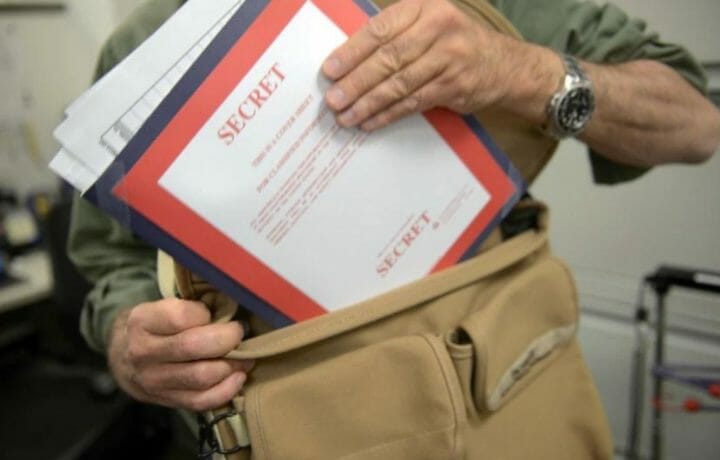Today in the courtroom of the Northern District of West Virginia, located in Martinsburg, WV, Jonathan Toebbe and his spouse, Diana Toebbe were supposed to be sentenced to prison. The couple had already pleaded guilty to a number of charges, including the Atomic Energy Act and threat to national security. The judge rejected the plea deal, citing that the recommended period of incarceration as being inadequate.
Jonathan Toebbe, who was the principal and instigator of the theft and onward attempt to transmit the purloined information to a foreign government, now understood to have been Brazil, was expected to have been sentenced to 12-17.5 years. His wife, who was described by both the defense and prosecution as having played a willing, yet limited role in the couple’s espionage was expected to be sentenced to 36 months.
Plea agreement rejected
Judge Gina M. Groh, noted the binding range of the agreed sentencing was outside the range, and the reasons given she deemed as unacceptable to her rejection of the plea agreements. She gave the Toebbe’s the opportunity to withdraw their plea. If they would not, then she would sentence. If withdrawn, trial dates would be set.
The Toebbe’s consulted with their attorneys and withdrew their pleas and asked that a trial date be set. The judge then set the trial date for January 17, 2023 for a jury trial.
The argument for the plea agreement from defense and prosecution
Much of the discussion following the February guilty plea was held in accordance to CIPA guidelines, to include both unclassified and classified sentencing memorandums. Judge Groh, presided over the hearing, which was availed to the public via Zoom teleconferencing. She asked pointed questions of both the government and the defense attorneys for the Toebbe. She was unambiguous in offering her observation that the sentencing recommendations, and the restrictions on her ability to mete out appropriate punishment as detailed in the plea agreements gave her pause.
During the course of the sentencing hearing it was revealed that, even though Toebbe may have provided what was construed to be voluminous amounts of information to individuals who he thought were representatives of Brazil, and they were in reality FBI special agents. It was also noted that the classification level of the information never exceeded “confidential.”
Judge Groh asked both the prosecution and U.S. Navy Commander of Submarine Forces Atlanta if such was the case and received affirmations from both. In addition, both the U.S. Attorney and defense counsel highlighted the level of cooperation which was provided to the government by Toebbe. The characterization of the information as “unique” and “previously unknown” were used. In addition, his cooperation included providing access to his secure email (proton mail) and sitting for three full days of interviews.




